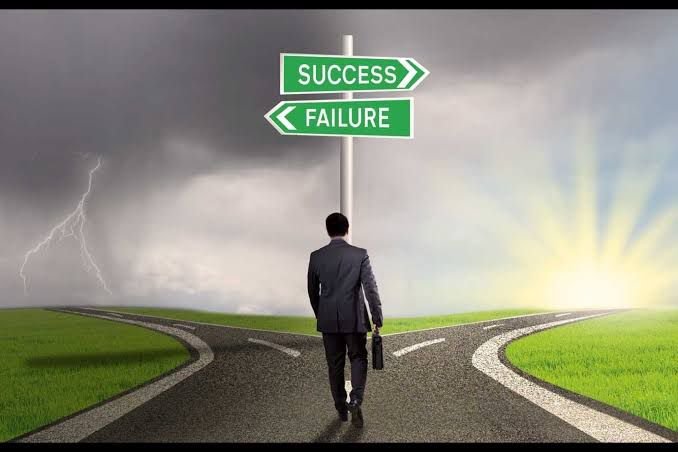Embracing Failure: The Stepping Stone to Success

In the journey of life, success is often hailed as the ultimate destination. Yet, hidden beneath the shiny veneer of triumph lie numerous setbacks, disappointments, and failures. While failure may seem like the antithesis of success, it is, in fact, an essential ingredient in the recipe for achievement. As individuals, organizations, and societies, we must recognize failure not as a roadblock but as a stepping stone to learning and ultimately succeeding.
Failure is a natural part of the human experience. From the moment we learn to walk, we stumble and fall numerous times before finally gaining our balance. Similarly, in the pursuit of our goals and aspirations, we encounter obstacles that may lead to setbacks and failures. However, it is how we respond to these failures that determine our path forward.
One of the most significant benefits of failure is the opportunity it provides for learning and growth. Each failure offers valuable insights, allowing us to identify what went wrong, what could have been done differently, and how to improve in the future. Thomas Edison, the inventor of the light bulb, famously said, “I have not failed. I’ve just found 10,000 ways that won’t work.” This mindset exemplifies the importance of reframing failure as a learning experience rather than a defeat.
Before revolutionizing the tech industry with products like the iPhone and MacBook, Steve Jobs experienced numerous failures. His first venture, NeXT, faced significant challenges, and he was ousted from Apple, the company he co-founded. However, Jobs used these setbacks as opportunities for growth, eventually returning to Apple and leading it to unprecedented success.
Before becoming a household name in the hospitality industry, Airbnb encountered numerous failures. The founders, Brian Chesky, Joe Gebbia, and Nathan Blecharczyk, initially struggled to attract investors and faced rejection after rejection. However, they persisted, learning from their failures and eventually transforming Airbnb into a multi-billion-dollar company that revolutionized the way people travel and book accommodations.
Uber’s journey to success was paved with failures and challenges. The ride-hailing giant faced resistance from traditional taxi companies, regulatory hurdles in various cities, and internal management issues. Despite these setbacks, Uber’s founder, Travis Kalanick, remained resilient, learning from each failure and steering the company toward unprecedented growth and success.
X formerly known as Twitter, now a ubiquitous social media platform, initially struggled to find its footing in the crowded tech landscape. The company faced technical issues, management shakeups, and difficulties monetizing its platform. Yet, through perseverance and a willingness to learn from failure, Twitter emerged as one of the most influential social media platforms in the world.
According to a study by Harvard Business School, approximately 75% of venture-backed startups fail. This statistic underscores the high failure rate prevalent in the global startup ecosystem and highlights the importance of resilience and adaptability for entrepreneurs.
India’s largest e-commerce company, Flipkart, faced numerous challenges and failures in its early years. From logistical hurdles to fierce competition, the company navigated various setbacks before achieving monumental success. Flipkart’s founders, Sachin Bansal, and Binny Bansal, remained undeterred by failure, leveraging each setback as an opportunity to learn and iterate their business model.
Ola, India’s leading ride-hailing platform, experienced its fair share of failures and challenges on the path to success. The company faced regulatory hurdles, fierce competition from global players, and operational complexities. However, Ola’s founders, Bhavish Aggarwal, and Ankit Bhati persevered, learning from each failure and ultimately establishing Ola as a dominant player in the Indian mobility market.
The Lean Startup methodology, popularized by Eric Ries, advocates for a systematic approach to entrepreneurship that emphasizes rapid iteration, customer feedback, and learning from failure. By embracing failure early in the product development process, startups can avoid costly mistakes and increase their chances of success in the long run.
Despite the growing number of startups in India, the failure rate remains high. According to a report by IBM Institute for Business Value, nearly 90% of startups in India fail within the first five years of operation. Factors contributing to startup failure include lack of market demand, poor management, and inadequate funding.
Investor sentiment plays a crucial role in shaping the trajectory of startups in India. While venture capital investment in Indian startups has been on the rise in recent years, investors are becoming increasingly selective in their funding decisions. Startups with a track record of resilience, adaptability, and a willingness to learn from failure are more likely to attract investment.
In both the global and Indian startup ecosystems, failure is not the end of the road but rather a valuable learning opportunity. Entrepreneurs who embrace failure, analyze their mistakes, and adapt their strategies accordingly are more likely to succeed in the long run. By fostering a culture of experimentation, resilience, and continuous learning, startups can navigate the challenges of entrepreneurship and emerge stronger and more successful than ever before.
Failure is not a sign of weakness but a testament to the courage and resilience of entrepreneurs who dare to dream big. In the global startup ecosystem, as well as within the burgeoning landscape of Indian entrepreneurship, failure is a common experience shared by startups of all sizes and stages of growth. By learning from failure, adapting to changing circumstances, and persevering through adversity, startups can turn setbacks into opportunities and pave the way for future success. As we continue to witness the evolution of the startup ecosystem, let us remember that failure is not the end of the journey but merely a stepping stone on the path to greatness.





